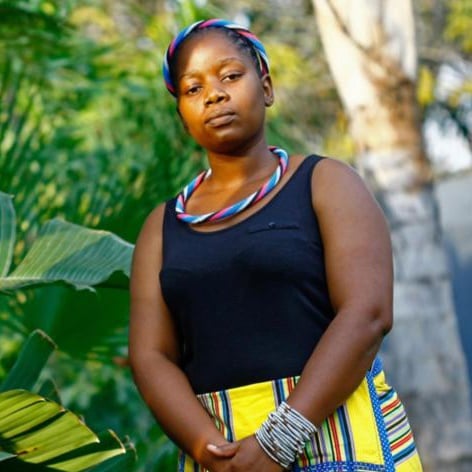
The Venda royal family has dismissed a submission to the court declaring Toni Mphephu-Ramabulana ineligible for the VhaVenda kingship in line with their customs as nothing but “just a report and not actual judgment”.
The report was compiled by the National House of Traditional Leaders and the Limpopo House of Traditional Leaders for consideration by the Limpopo High Court as ordered by the Supreme Court of Appeal in April. The submission takes Mphephu-Ramabulana out of contention for the next monarch of the Venda kingdom. However, it sets Princess Masindi Mphephu as the rightful heir to the throne and not her uncle.
The princess has been challenging her uncle for the crown, arguing that she was removed from the line of succession because of her gender. The 27-year-old has argued that the decision to recognise her uncle as king was “based on criteria that promotes gender discrimination”.
In 2016 Princess Mphephu obtained a court order that stopped the coronation ceremony which could have seen former president Jacob Zuma awarding her uncle a recognition certificate as king of the VhaVenda.
In another blow, Mphephu-Ramabulana, named as one of the people who allegedly benefitted from the downfall of VBS Mutual Bank, was stripped of his crown by the Supreme Court of Appeal in a judgment which also ordered the withdrawal of his certificate of recognition pending the outcome of a court appeal.
It also set aside the royal council’s 2010 decision to “identify [Mphephu-Ramabulana] as a suitable person to be appointed as the king of the VhaVenda traditional community”, and declared a 2012 decision by Zuma to recognise him as “unconstitutional and invalid”.
Now, the Limpopo High Court will have to take another look at the matter. This time, it will have to take into consideration a report compiled by the national and provincial houses of traditional leaders.
The two officials were tasked by the court to provide an opinion and advice based on customary law and customs.
First, they had to say what measures were in place or have to be in place for the adaption and transformation of the principle of primogeniture by the traditional communities.
Second, the questions that should be resolved include whether a child born before the parent is recognised as a traditional leader qualifies to be the successor and whether the in the VhaVenda custom the indumi qualifies to be identified and recognised as a successor to a position of traditional leadership.
An indumi is described as a “male person appointed by the royal family as one of the assistants to the reigning king or queen”.
The princess argued that Mphephu-Ramabulana was her father’s indumi and not his rightful successor. The court has previously noted her contention that Mphephu-Ramabulana “ascended the position of a senior traditional leader as a regent”.
Princess Mphephu’s father, Tshimangadzo Dimbanyika Mphephu, died in a car accident in 1997. He was succeeded by his half-brother Mphephu-Ramabulana. The princess has previously accused her uncle of “usurping” the position after he was inaugurated as regent in 1998.
In their opinion, the two houses of traditional leaders argue that the “basic rule that cannot be overlooked in the custom of VhaVenda is that the successor must be born from a dzekiso wife”.
A dzekiso wife is a woman who is identified for an arranged marriage and goes through initiation to prepare her to be the king’s wife.
“The identified woman would be taught the behavioural requirements of an official wife. In this regard, Fhulufelo, Princess Mphephu’s mother, was identified as such and was made to visit the royal family so that the heir-apparent may develop feelings for her and get used to her,” the report said.
It says there was a wedding celebration after which Fhulufelo was taken into the royal house.
In an opinion drawn from the set of customs that were followed for Fhulufelo to be a dzekiso wife, the houses of traditional leaders state: “A child born from the dzekiso wife is the one who qualifies to succeed [the father].”
The report said the “qualification should not be based on when the potential successor was born”.
On whether the indumi qualifies to be recognised as a successor, the report said this was not the case.
“The house from which the indumi comes from is basically disqualified to succeed in the position of traditional leader,” the report reads.
“King Toni Mphephu-Ramabulana was appointed ndumi of his late brother, Tshimangadzo Dimbanyika Elias Mphephu. His appointment as ndumi automatically disqualified him from succeeding in a position of traditional leadership.
“Should the traditional leader pass on, either the khadzi [royal aunt] or ndumi who were unveiled with the traditional leader may act in the position of traditional leader. Neither of the two may be recognised as a permanent traditional leader.”
Royal family spokesperson Advocate Makondelele Mathivha said they were “not supposed to respond [to the report] because it is going to court”. But he said the family was “shocked by the hype created by the submission”.
“It is a report and not an actual judgment ... it is going to court and parties are going to debate the content thereof,” he said.
Meanwhile, Princess Mphephu said the report was “confirmation of the truth”.
“I have been ignored, vilified and undermined because of my gender and frustrated to a point where I had to seek the intervention of the courts. I am happy with the conclusions of both the national and provincial houses of traditional leaders.
“They have indeed provided continued assistance to the issues of traditional leadership and I believe this is where it should have started,” she said.




 Publications
Publications
 Partners
Partners








